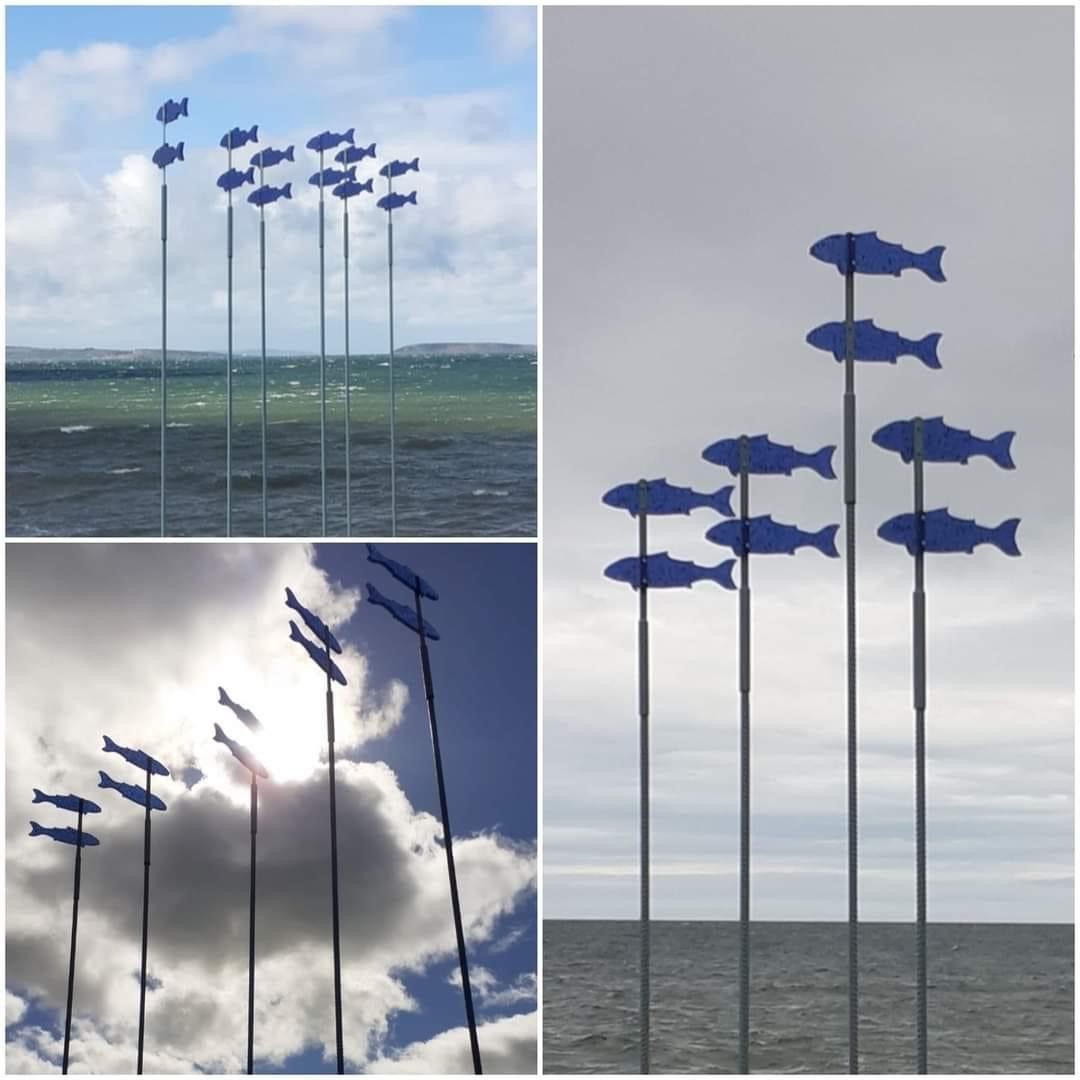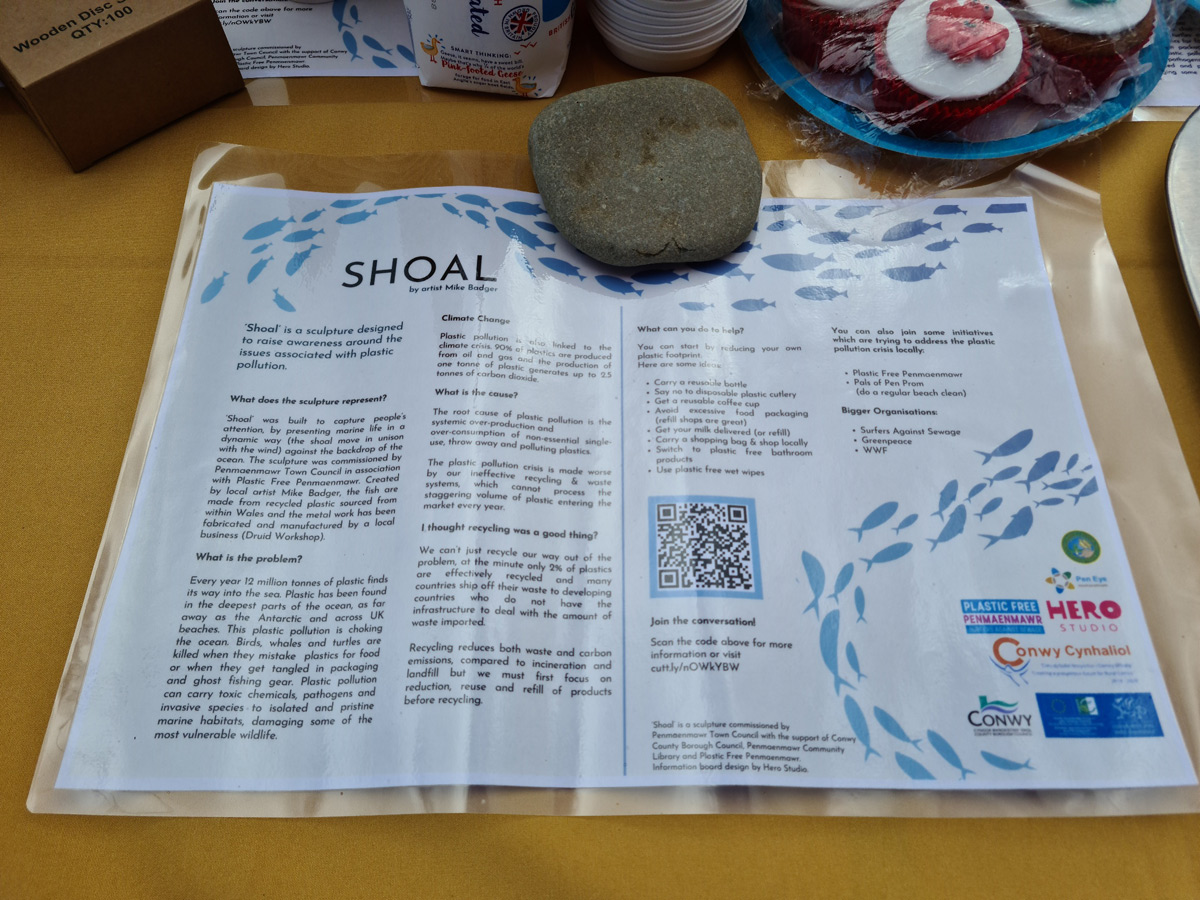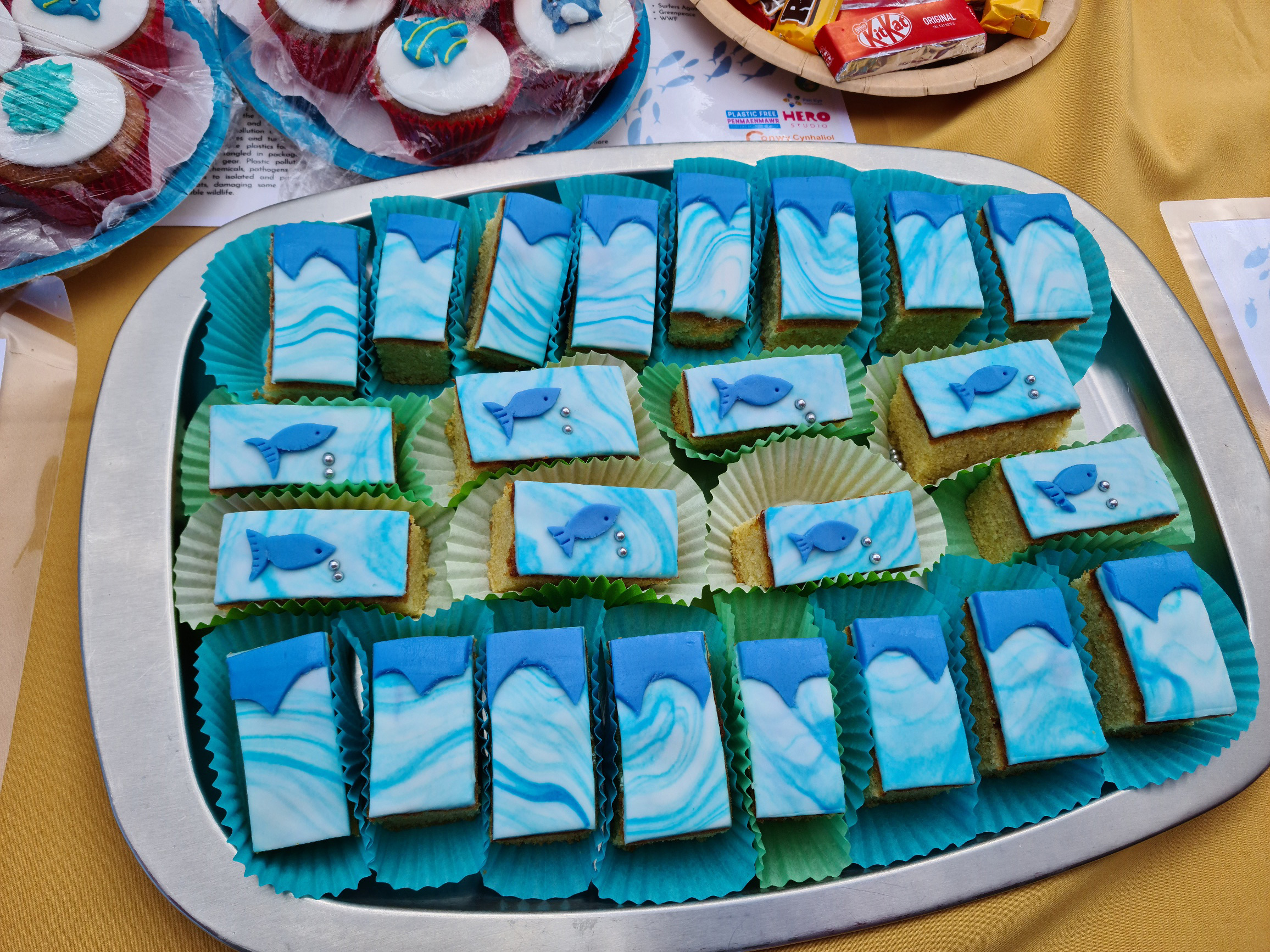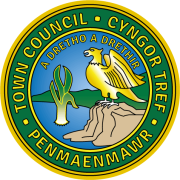SHOAL Sculpture
Plastic Free Awareness
‘Shoal’ is a sculpture designed to raise awareness around the issues associated with plastic pollution.
The launch of ‘Shoal’, a sculpture created by Mike Badger that raises awareness of the problem of plastic in our seas and oceans took place on Saturday 9 April at 2pm at Penmaenmawr Promenade.
Commissioned by Penmaenmawr Town Council, Plastic Free Penmaenmawr and Conwy County Borough Council. The sculpture consists of six metal rods that are attached to the wooden sea defence (groyns) at the high tide mark of the Promenade. Each rod holds two fish made from recycled plastic that swivel and move with the wind. (Swapping water currents for air currents) at 4.5m in height and 4m width, the coloured fish move in unison to create a kinetic, dynamic spectacle for the general public to enjoy as they amble along the historic Promenade.
What does the sculpture represent?
‘Shoal’ was built to capture people’s attention, by presenting marine life in a dynamic way (the shoal move in unison with the wind) against the backdrop of the ocean. The sculpture was commissioned by Penmaenmawr Town Council in association with Plastic Free Penmaenmawr. Created by local artist Mike Badger, the fish are made from recycled plastic sourced from within Wales and the metal work has been fabricated and manufactured by a local business (Druid Workshop).
What is the problem?
Every year 12 million tonnes of plastic finds its way into the sea. Plastic has been found in the deepest parts of the ocean, as far away as the Antarctic and across UK beaches. This plastic pollution is choking the ocean. Birds, whales and turtles are killed when they mistake plastics for food or when they get tangled in packaging and ghost fishing gear. Plastic pollution can carry toxic chemicals, pathogens and invasive species to isolated and pristine marine habitats, damaging some of the most vulnerable wildlife.
Climate Change
Plastic pollution is also linked to the climate crisis. 90% of plastics are produced from oil and gas and the production of one tonne of plastic generates up to 2.5 tonnes of carbon dioxide.
What is the cause?
The root cause of plastic pollution is the systemic over-production and over-consumption of non-essential single-use, throw away and polluting plastics. The plastic pollution crisis is made worse by our ineffective recycling & waste systems, which cannot process the staggering volume of plastic entering the market every year.
I thought recycling was a good thing?
We can’t just recycle our way out of the problem, at the minute only 2% of plastics are effectively recycled and many countries ship off their waste to developing countries who do not have the infrastructure to deal with amount of waste imported. Recycling reduces both waste and carbon emissions, compared to incineration and landfill but we must first focus on reduction, reuse and refill of products before recycling.
What can you do to help?
You can start by reducing your own plastic footprint.
Here are some ideas:
- Carry a reusable bottle
- Say no to disposable plastic cutlery
- Get a reusable coffee cup
- Avoid excessive food packaging (refill shops are great)
- Get your milk delivered (or refill)
- Carry a shopping bag & shop locally
- Switch to plastic free bathroom products
- Use plastic free wet wipes
Join the conversation!
You can also join some initiatives which are trying to address the plastic pollution crisis locally:
- Plastic Free Penmaenmawr
- Pals of Pen Prom (do a regular beach clean)
- Surfers Against Sewage
- Greenpeace
- WWF
